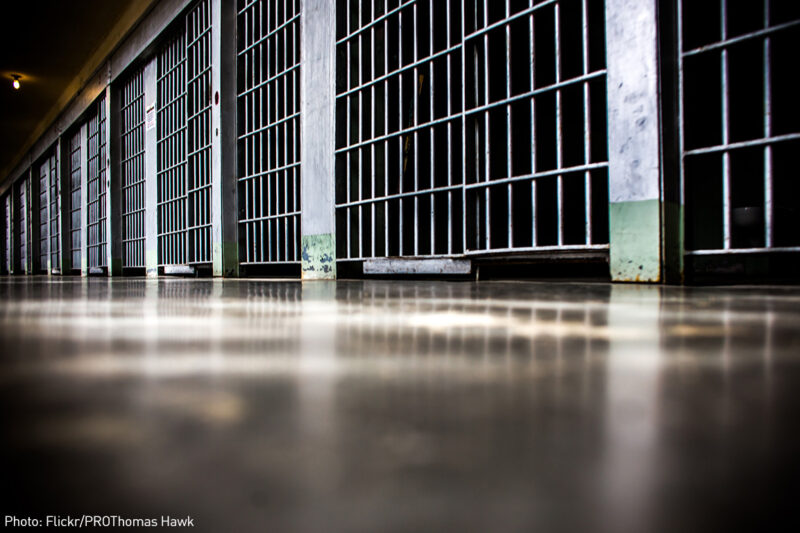
Next week, the U.N. Human Rights Council will formally adopt the first-ever U.N. report on mass incarceration. In this groundbreaking report, the U.N. high commissioner for human rights brings global attention to the root causes of overincarceration and overcrowding in prisons. A draft resolution that is expected to be adopted by the council will express concern about the “negative impact of over-incarceration and over-crowding on the enjoyment of human rights.”
The ACLU worked with other groups to bring this issue to the attention of the Human Rights Council. With considerable movement for criminal justice reform right now, it is the perfect time for the U.N. to issue recommendations on how to reduce the prison and jail population worldwide taking into account human rights obligations and commitments.
In the report, the high commissioner outlines a human rights-based approach for criminal justice reform that puts the human dignity of the person at the forefront. This approach emphasizes smart reforms like utilizing alternatives to detention, focusing on rehabilitation, and avoiding incarceration of children and other groups in vulnerable situations where possible. This report can and should serve as blueprint for reform in the United States, where the overuse of imprisonment is a problem of devastating proportions.
With an incarceration rate five to 10 times that of other Western democracies, the United States has less than five percent of the world’s population, but our country’s prisoners account for one fifth of the global prison population. The U.S. incarcerates more people — in absolute numbers and per capita — than any nation in the world, including the far more populous China, which rates second, and Russia, which rates third.
These numbers reflect misuse of incarceration to respond to social challenges and basic human needs. People struggling with addiction and mental illness are jailed rather than treated. People who need community-based supervision, education, and jobs to end the cycle of recidivism receive longer and longer sentences instead. Young people in neglected neighborhoods who are exposed to poverty, violence, and trauma are pushed out of schools and into prisons rather than embraced and healed. Moreover, the racially disparate patterns of policing and punishment reflect the United States’ ongoing struggle to come to terms with its history of slavery, marginalization, and oppression of people of color.
Unfortunately, the U.S. government missed an opportunity to contribute to the U.N. report, a report that it must champion given the current domestic movement for criminal justice reform and President Obama’s own stated commitment to reform, which he delivered at the NAACP Annual Convention in July.
Legislators across the United States are realizing that America’s addiction to incarceration is unsustainable, costing taxpayers billions of dollars while doing little to prevent crime. Important recent state criminal justice reforms have included allowing parole for elderly prisoners, reducing criminal penalties for drug crimes, decriminalizing or legalizing marijuana, raising the threshold of misconduct for what constitutes a felony, using non-prison sanctions for technical violations of probation and parole, and eliminating mandatory minimum sentencing. As a result, numerous states — including New York, New Jersey, Michigan, California, and Texas — have significantly reduced their prison populations in the last several years.
But more needs to be done. The human rights-based approach to criminal justice reforms outlined in the U.N. report can help reduce our prison population and make us safer. This approach includes reform efforts that invest in crime prevention and rehabilitation efforts: behavioral therapy, intensive treatment for mental health and substance abuse, and preventive programs can deliver crime reduction without destroying lives and families. By investing in better options and making it explicit in the criminal code that solutions are favored over incarceration, we can truly begin to see meaningful change.

